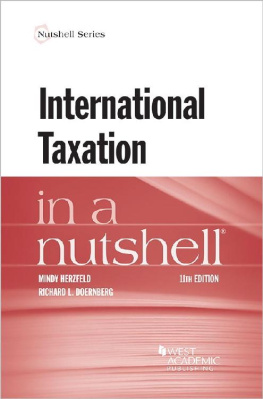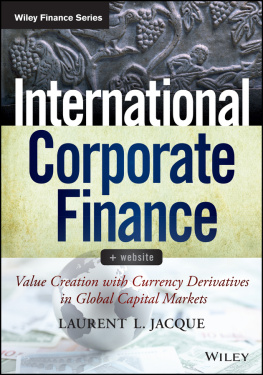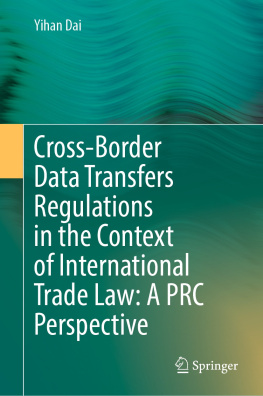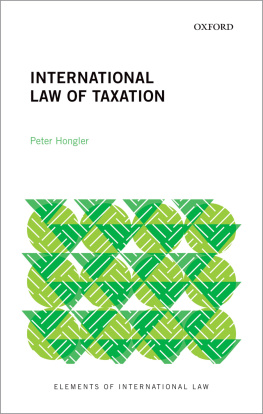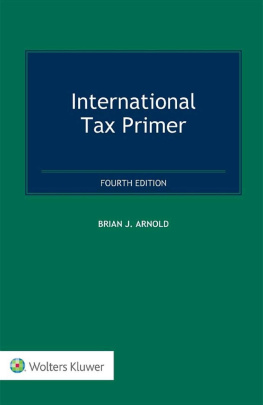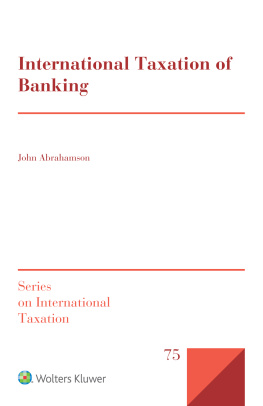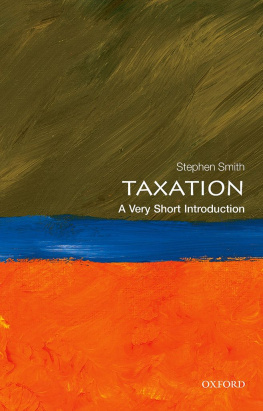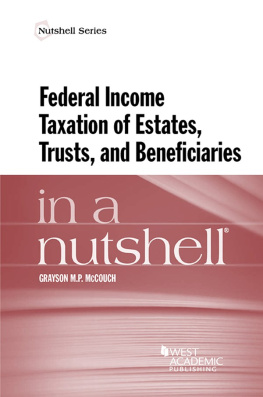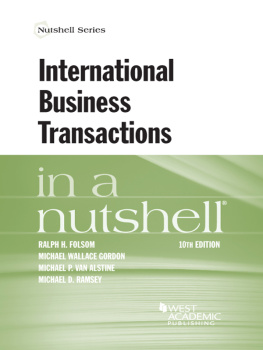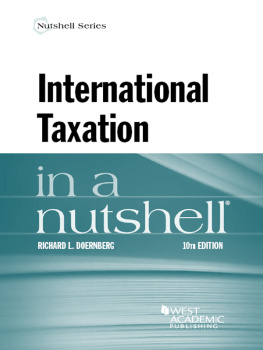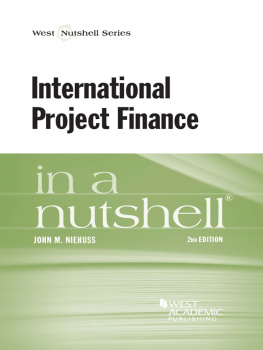WEST ACADEMIC PUBLISHINGS LAW SCHOOL ADVISORY BOARD
JESSE H. CHOPER
Professor of Law and Dean Emeritus
University of California, Berkeley
JOSHUA DRESSLER
Distinguished University Professor, Frank R. Strong Chair in Law
Michael E. Moritz College of Law, The Ohio State University
YALE KAMISAR
Professor of Law Emeritus, University of San Diego
Professor of Law Emeritus, University of Michigan
MARY KAY KANE
Professor of Law, Chancellor and Dean Emeritus
University of California, Hastings College of the Law
LARRY D. KRAMER
President, William and Flora Hewlett Foundation
JONATHAN R. MACEY
Professor of Law, Yale Law School
ARTHUR R. MILLER
University Professor, New York University
Formerly Bruce Bromley Professor of Law, Harvard University
GRANT S. NELSON
Professor of Law Emeritus, Pepperdine University
Professor of Law Emeritus, University of California, Los Angeles
A. BENJAMIN SPENCER
Justice Thurgood Marshall Distinguished Professor of Law
University of Virginia School of Law
JAMES J. WHITE
Robert A. Sullivan Professor of Law Emeritus
University of Michigan
INTERNATIONAL TAXATION
IN A NUTSHELL
ELEVENTH EDITION
MINDY HERZFELD
Professor of Law
University of Florida,
Levin College of Law
RICHARD L. DOERNBERG
K.H. Gyr Professor of Law Emeritus
Emory University School of Law

The publisher is not engaged in rendering legal or other professional advice, and this publication is not a substitute for the advice of an attorney. If you require legal or other expert advice, you should seek the services of a competent attorney or other professional.
Nutshell Series, In a Nutshell and the Nutshell Logo are trademarks registered in the U.S. Patent and Trademark Office.
COPYRIGHT 1989, 1993, 1997 WEST PUBLISHING CO.
COPYRIGHT 1998 WEST GROUP
COPYRIGHT 1999 WEST PUBLISHING CO.
West, a Thomson business, 2001, 2004, 2009
2012 Thomson Reuters
2016 LEG, Inc. d/b/a West Academic
2018 LEG, Inc. d/b/a West Academic
444 Cedar Street, Suite 700
St. Paul, MN 55101
1-877-888-1330
West, West Academic Publishing, and West Academic are trademarks of West Publishing Corporation, used under license.
Printed in the United States of America
ISBN: 978-1-64020-905-3
With thanks to 2018 graduates of University of Floridas International Tax LLM Program, Jessica Akue and Sebastian Duenas, for their assistance.
Mindy Herzfeld
PERSONAL NOTE
It has been my privilege for more than 25 years to author ten editions of International Taxation as part of the Nutshell Series. But advancing age, the arrival of joyful grandchildren and the unmistakable cosmic sign of the enactment of a totally new international tax system in the U.S. have convinced this old dog that someone else gets to learn the new tricks. Mindy Herzfeld and I have worked together professionally and she is well-known in international tax circles as a splendid tax practitioner, widely published author and teacher. The future of the International Taxation Nutshell could not be in better hands.
Richard L. Doernberg
Atlanta, Ga. July 2018
PREFACE
The tax law that was enacted by Congress in December 2017 made major changes to the U.S. international tax rules, some of them the most significant since these rules were first established in the early decades of the 20th century. This 11th edition of International Taxation in a Nutshell therefore represents a significant revision from prior editions to capture the changes in law. At the same time, as this edition is going to press, the dust is still settling on the new law. Regulatory guidance by the IRS and Treasury has yet to be issued in most areas of the new law, and this regulatory guidance will need to be substantial. In other words, this edition is not likely to be the last.
Those readers who are beginning their study of this subject for the first time are therefore very fortunate: they are not burdened by expectations and old ways of thinking that ground those whose education was in a prior regime. New students of international taxation have the chance to become freshly minted experts in the area, not far behind those with decades of experience of practicing in this area. Its an exciting time to be studying this field.
The study of international taxation is not just important for law students who want to become expert in a highly technical area of the law. For anyone who is or will be involved in international business and investment transactions, it is important to have some basic understanding of the relevant tax laws. This book therefore serves as an introduction to the U.S. law of international taxation for both law students interested in becoming tax experts, and a broader audience of those engaged in cross-border business from a variety of backgrounds. It is a primer that can be useful for law and accounting students, foreign tax practitioners or scholars, U.S. tax practitioners seeking an introduction to the area or an overview of recent changes in the international tax rules, and others who might benefit from an overview of the U.S. tax laws governing international trade and investment. The book summarizes the law, offering some attention to the purposes of the various legal rules. However, it is beyond the scope of the book to offer a critical evaluation of the provisions summarized or to delve deeply into tax planning structures and techniques. Actually practicing international tax in reliance solely on this primer could be hazardous to your career.
It will come as no revelation that the U.S. income tax laws are wondrously complex, made even more so by recent changes ostensibly intended to simplify the law. Moreover, the student of U.S. international tax law should have some grounding in U.S. individual, partnership, state, employment and corporate tax principles. U.S. international tax does not exist in a vacuum. Knowledge of foreign tax systems is also useful. But realistically, many practitioners have their hands full trying to understand the U.S. system and collaborate with foreign colleagues on cross-border transactions. Ironically it is because of the complexity that it is important to present a straight-forward conceptual framework of the U.S. international tax provisions. Even with a framework, the intricate rules governing U.S. taxation of international transactions can be mind-numbing. Without an understanding of the structure of the U.S. international tax provisions (and often even with such an understanding), the rules are all but incomprehensible. Unfortunately, that is all too often the case even with an understanding of the structure.
To use this book effectively, it is helpful to have the Internal Revenue Code open at all times. If you are truly ambidextrous, you should have the most updated version of the U.S. Income Tax Regulations at hand as well. Frequent references are made to both the Code and the regulations. There are some citations to caselaw and administrative rulings where they help illustrate the subject matter. However, the book is not a treatise, and so there is no attempt to treat comprehensively the caselaw and rulings.
To consider fully the international tax laws affecting international trade would require the study not only of U.S. international tax laws but also of foreign tax laws. However, such a study is beyond the scope of this book. So too is any consideration of the non-tax legal concerns affecting international transactions, including private international law, European Union law, the WTO, NAFTA, the internal laws of other nations, customs law, tariffs, and non-tax international treaties. The tax laws of the individual states of the United States are not discussed. The focus here is on U.S. international tax laws and U.S. income tax treaties.
Next page
